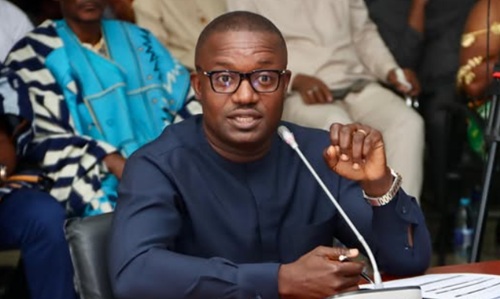
Energy Minister Designate John Jinapor raises concerns over escalating energy sector debt
Energy Minister designate John Abdulai Jinapor has expressed grave concerns over Ghana’s ballooning energy sector debt, which has surged to over $3 billion as of January 12, 2025.
He highlighted the financial challenges during his vetting by Parliament’s Appointments Committee on Monday, January 13, 2025.
“When we left office on August 31, 2017, the debt was $2.1 billion. As of yesterday, January 12, 2025, the outstanding debt has exceeded $3 billion,” Mr Jinapor stated.
The debt burden includes unresolved financial obligations to Independent Power Producers (IPPs), which stood at $1.2 billion as of October 2024. He attributed the growing debt to unaccounted-for power sales and called for immediate measures to address the issue.
Push for private sector involvement in ECG
The Minister designate also emphasised the need for private sector participation in the operations of the Electricity Company of Ghana (ECG) to improve efficiency and enhance power distribution. He proposed forming a seven-member committee to guide the process, comprising technical experts, legal and financial specialists, industry players, and consumer representatives.
“We believe there should be private sector participation,” he said. “What we intend to do is to form a seven-member committee, chaired by technical experts, legal aspects, financial experts, some industry players, and even somebody from the consumer side.”
Transparent and structured process
Mr Jinapor assured the Committee that the process would be transparent and devoid of political interference.
“We will stay off as politicians and let them develop a framework in a transparent, open, and frank manner. Once we get the buy-in of Ghanaians, we can set standards using a Request for Proposal (RFP) or competitive tender process,” he explained.
He stressed that the government would not resort to sole-sourcing in engaging the private sector, instead favouring a competitive process with a strong emphasis on local content and Key Performance Indicators (KPIs).
“Our approach ensures a clear path forward, incorporating private sector expertise while safeguarding national interests,” he added.
Opposition to ECG privatisation
Meanwhile, the Public Utility Workers' Union (PUWU) of TUC Ghana has reiterated its opposition to the privatisation of ECG.
In a statement dated January 13, PUWU noted, “We are not unaware of the numerous local and international groups seeking to invest in the power sector, especially ECG. Many of these groups have resurfaced with similar agendas despite past opposition.”
The union reaffirmed its belief that the current alternative framework remains the best solution for Ghanaians and other stakeholders.
